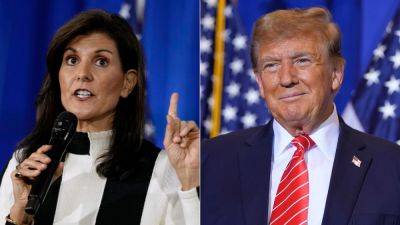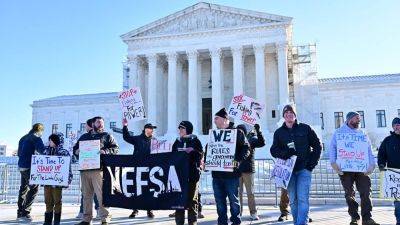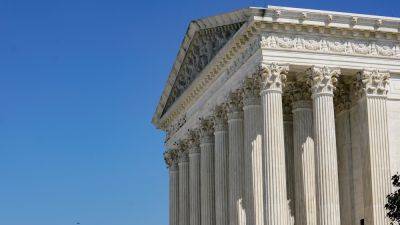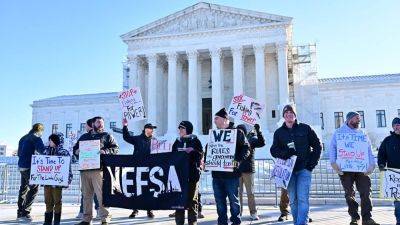With key precedent on the line, Supreme Court debates reeling in government power
The Supreme Court on Wednesday heard vigorous arguments over a 40-year-old precedent that has given broad power to federal agencies in how they regulate the environment, public health and safety, tax collection, stock trading and even prescription drug development.
A pair of cases, among the most consequential of the year, were brought by commercial herring fishermen from New Jersey and Rhode Island who asked the justices to overturn the precedent and invalidate a federal rule that would require them to pay the salaries of government monitors aboard their vessels. They argued Congress never intended them to foot the bill.
The Biden administration, backed by major environmental, civil rights and public health organizations, insisted the rule is a «reasonable» and legal reading of an ambiguous federal law.
In 1984, a high court opinion authored by the late Justice Antonin Scalia said that when federal law is ambiguous on a particular question, judges should defer to a federal agency's interpretation so long as it is «reasonable.» The approach is called the «Chevron Doctrine» after the case by the same name, Chevron v. National Defense Council.
In the case, environmental groups lost by a unanimous 6-0 vote of the court (three justices didn't participate in the decisions.) The court's decisions upheld an industry-favored interpretation of an air pollution regulation.
Several of the court's conservative justices have long been openly critical of the doctrine, indicating a desire to see it overturned or sharply scaled back.
«How do we know where the line is?» asked Justice Clarence Thomas. «How much deference is too much deference?»
Justice Brett Kavanaugh said excessive deference to agencies has created instability in the law.
«The







